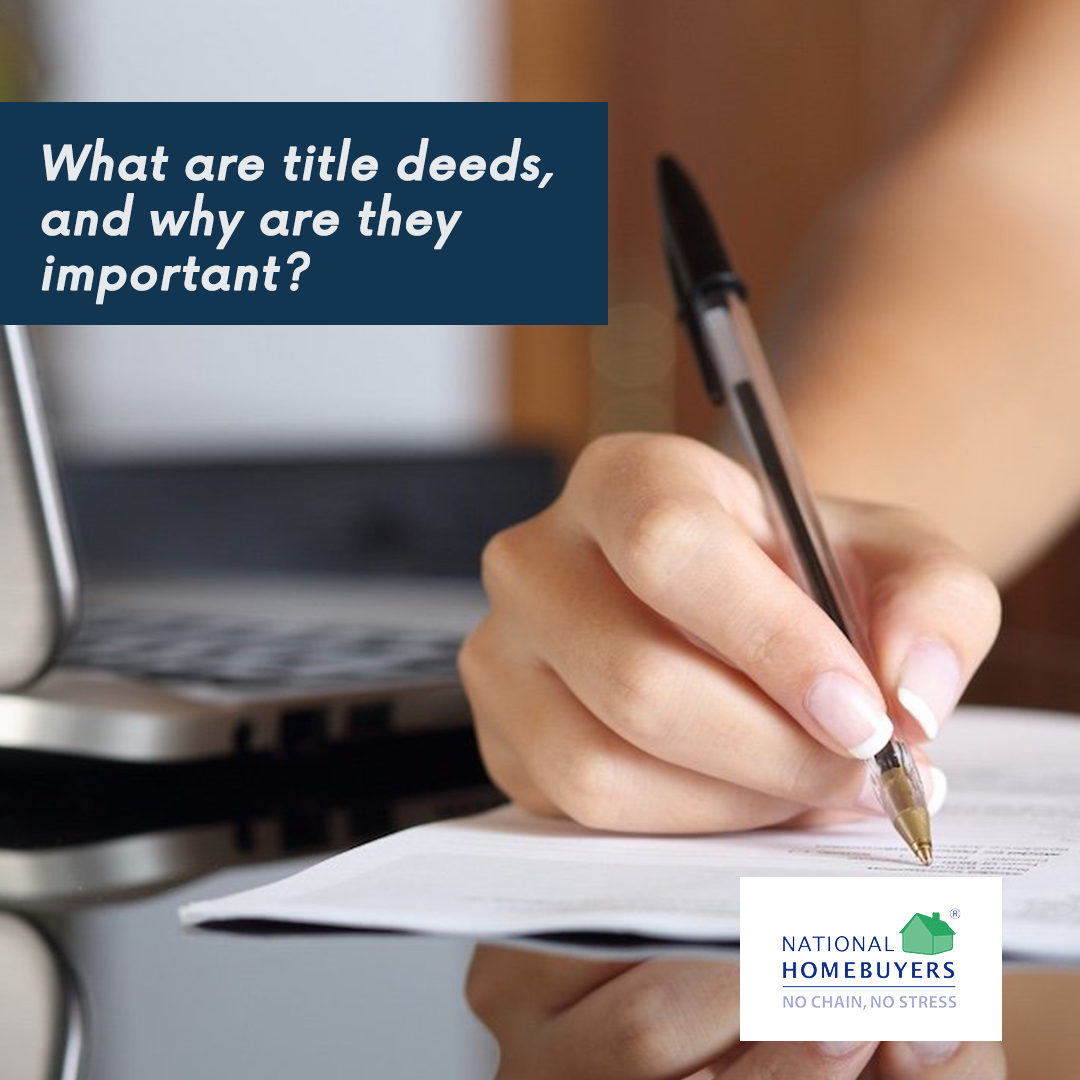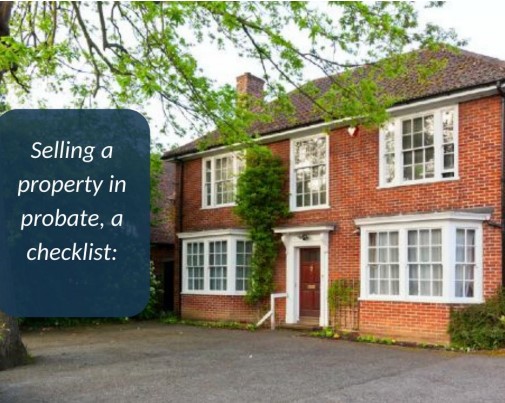What are Title Deeds, and why are they important?
They’re always referenced whenever people talk about buying or selling a house. But what are title deeds, and why are they important? And when was the last time you checked the deeds for your own property?
Estate agents and other professionals in the homebuying process will often assume you know and understand all of the common terms used in the process. But this can lead to problems, especially if you’re nervous about asking questions. And if you’ve owned a property for many years, it could be decades since you last thought about the title deeds.
What are title deeds?
If you’re buying land or property, it’s important you know that the person offering it for sale has legal ownership. The Land Registration Act 1862 was introduced in England and Wales to try and put a national system in place, but as a voluntary scheme it wasn’t particularly effective.
The Government put in place further acts and measures over the last 150 years, and virtually all land transactions now require registration. Amazingly, it took until 1998 to make recording some changes compulsory, such as when land transferred ownership after a death, if it was gifted rather than sold, or when a mortgage was created on it. The Land Registration Act 2002 is the most recent and simplified version of the original law in England and Wales. Separate laws and systems continue to apply in Scotland and Northern Ireland.
The result for home owners and buyers was the creation of title deeds. They set out who legally owns the land and property on it, the boundaries, and any freehold or leasehold tenure. And they’ll also include other details, including any covenants and restrictions on the land and property, rights of access, or any charges on the property by a bank or mortgage lender.
This means the title deeds may include Restrictive Covenants, such as rules on repairing and maintaining a property, limits on how you might alter it or run a business from the location, and any access, rights of way or roads which are on the land. Or even an obligation to pay money towards your local church, in the case of chancel repair liability.
HM Land Registry keeps digital records of title deeds for land and property, if the details have been filed with them as the definitive record of ownership in England and Wales. But the print title deeds may be stored with a number of different people.
There are two types of title deeds, with title absolute referring to the proven ownership. If the original documents have been lost and there’s no definitive proof, then a possessory title (or qualified title) can often be awarded. If this isn’t challenged during a period of 12 years, then it can usually be upgraded to title absolute.
How to find title deeds for a property
You can check the title information held by HM Land Registry on a property even if you don’t own it. Just visit the website, enter the house number and postcode, and be prepared to pay £3 for each copy of the title register (ownership) or title plan (a map of the land).
When you’re buying a house, your solicitor or conveyancer is legally responsible for checking the title deeds for any covenants. But the maximum compensation if they fail to spot or mention anything is limited to £50,000, so it might not cover your losses as a result of the error.
If you then want to get a copy of the title deeds for your property, you’ll need the property’s title number, and then use the application form for an official copy of the documents, which will cost slightly more at £7.
The paper title deeds for a property may be held by the current owner. But they’re often stored by the solicitor or conveyancer who acted on the last sale of the property. In some cases, they may be held by the mortgage lender. And with no legal requirement to pass on the paper documents, you may find that they’ve been retained by a previous owner.
If you’ve checked and your home or potential new property is registered with HM Land Registry, you don’t need to have the paper versions of your original title deeds. And you can sign up for regular alerts if any changes are made to the online records as a measure against identity theft or fraud.
In situations where the land and property aren’t registered, then you’ll need to go through the process of first registration when you take ownership of it or mortgage it. You’ll need to apply for a search against all previous owners, fill in an application form, and possibly prepare a scale plan.
Whether you’ve bought or inherited an unregistered property, the HM Land Registry website has detailed guides of the first registration process.
How to change or transfer your title deeds
Even if you’re not selling your home, you might need to update the ownership details. It could be adding a new spouse or partner, giving the home to a child or family member, or updating details following a death or divorce.
It’s possible to go through the process of adding or removing names from your title deeds without any legal assistance. But given that it’s the definitive record of ownership and can get quite complicated, it’s well worth getting support and advice from a solicitor when you’re changing or transferring your title deeds.
You can choose to transfer your entire property, or just part of it, which will require slightly different forms to be completed. But you’ll need to fill in an AP1 form and a certificate of identity for a private individual, check the fee for your application, and send it all to HM Land Registry. You’ll need to include details of who was holding the deeds when they were lost and what steps you’ve taken to try and recover them.
Normally your mortgage lender will automatically inform the Land Registry when you’ve finished paying. But if that hasn’t happened, you can use the AP1 form to apply to have them removed. You can also use the same form to change your name, or the form CNG to change your gender.
Buying or selling a house without title deeds
It’s possible that there’s a legitimate reason to buy or sell a house without having the title deeds available. But it makes the process much more complicated, increases the risks and impacts the property value.
Any buyer should approach with extreme caution. You’ll need to invest in extra legal assistance to ensure that your solicitor is meticulous and thorough with checking everything. A possessory title deed might not reveal any potential problems with restrictive covenants, so indemnity insurance is essential if you’re considering a house without title absolute deeds available.
It’s possible to sell your home without title deeds, but be prepared for the value of your property to be impacted. Buyers will want a reduction in the cost to cover their investment in more detailed searches and checks. You’ll typically be obliged to apply for possessory title deeds as part of the sales process, which means you’ll need to provide proof you have legal ownership of the property, although in some cases you can provide a statutory declaration to the buyer (and their mortgage lender).
Given a recent rise in publicity for cases of property fraud, buyers will be much more wary about investing in a property without title deeds. So, if you’re looking for a quick sale, or want to reduce the complications involved, then it’s definitely worth checking the cash offer we could make for your property.
There’s no obligation involved, but if you choose to go ahead the money can be in your account in days, and we can even pay up to £1000 towards your legal fees upon completion, subject to exchanging contracts within 30 days of accepting the offer. So, if you’re struggling to sell a property without title deeds, it’s a simple and easy solution for a fast sale.






